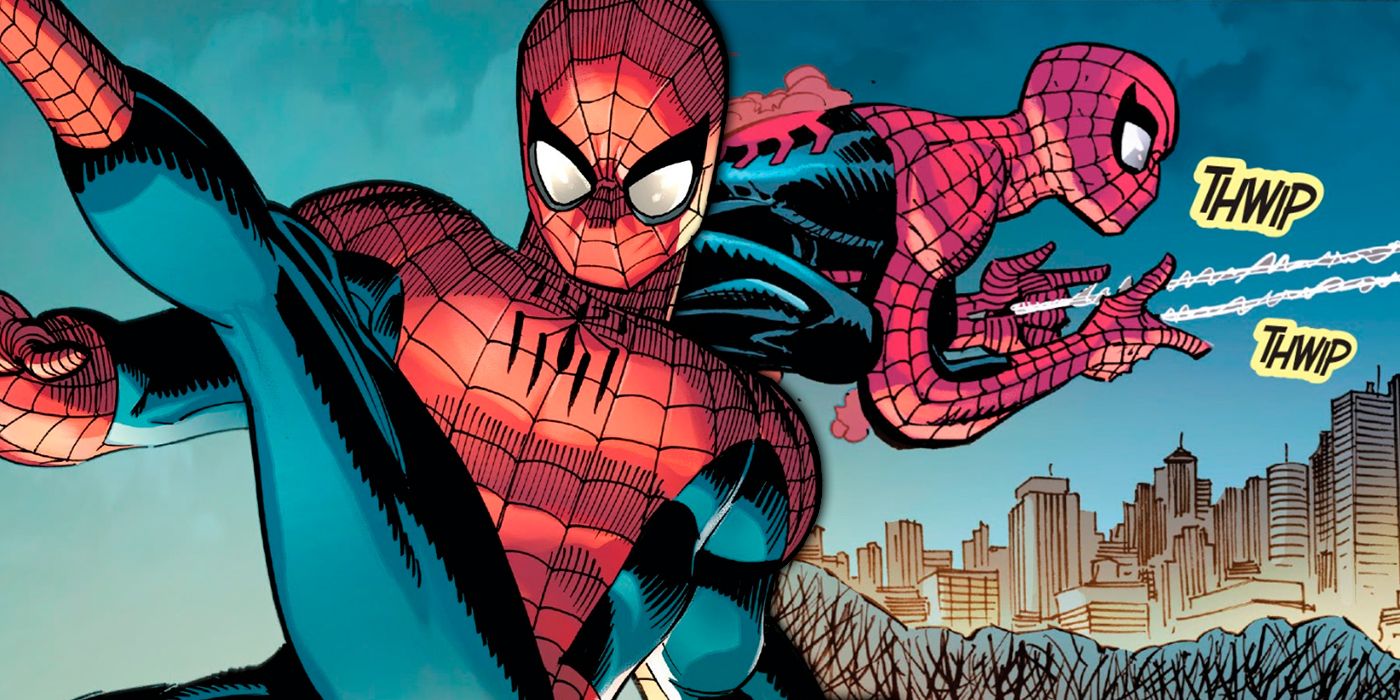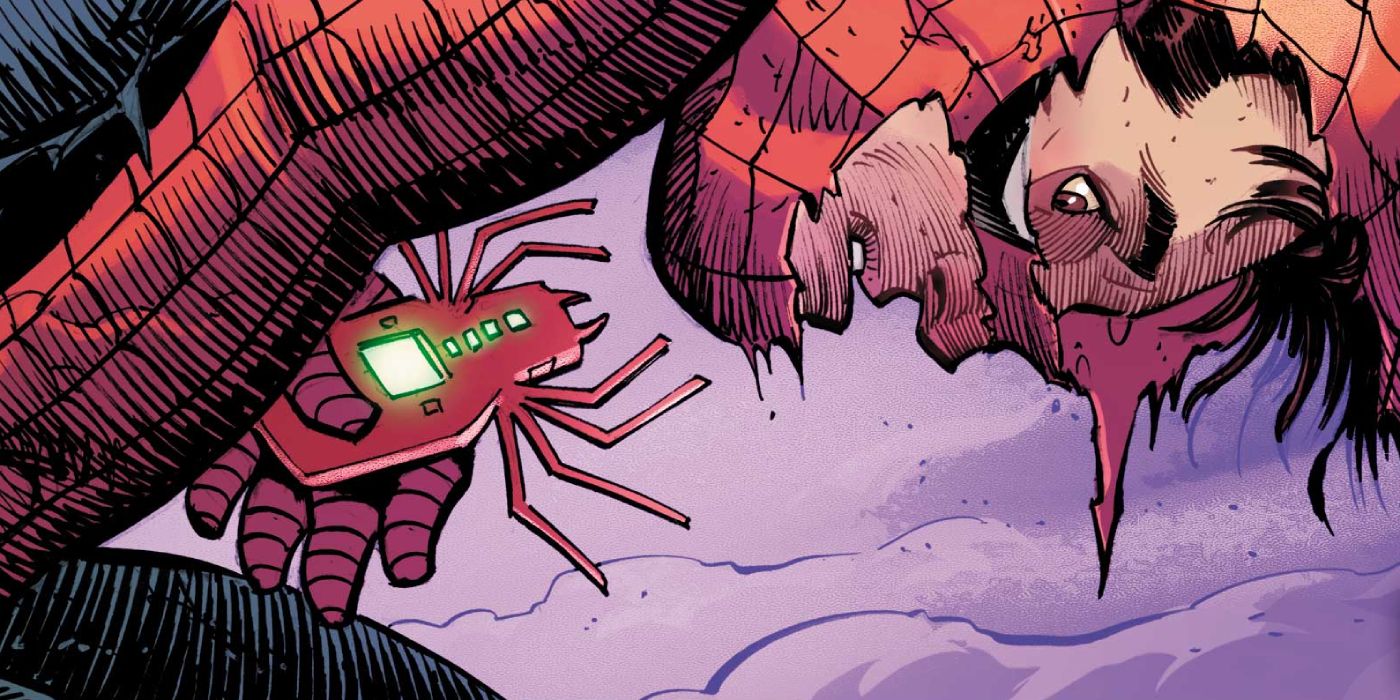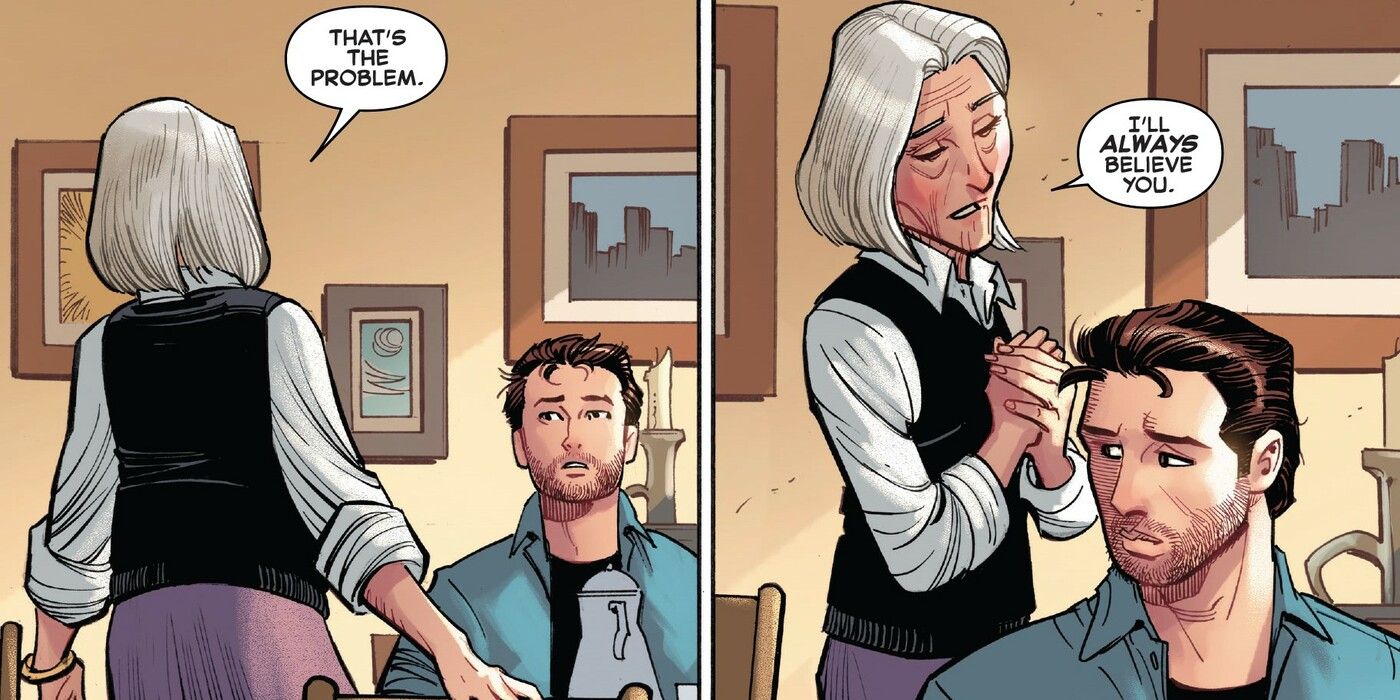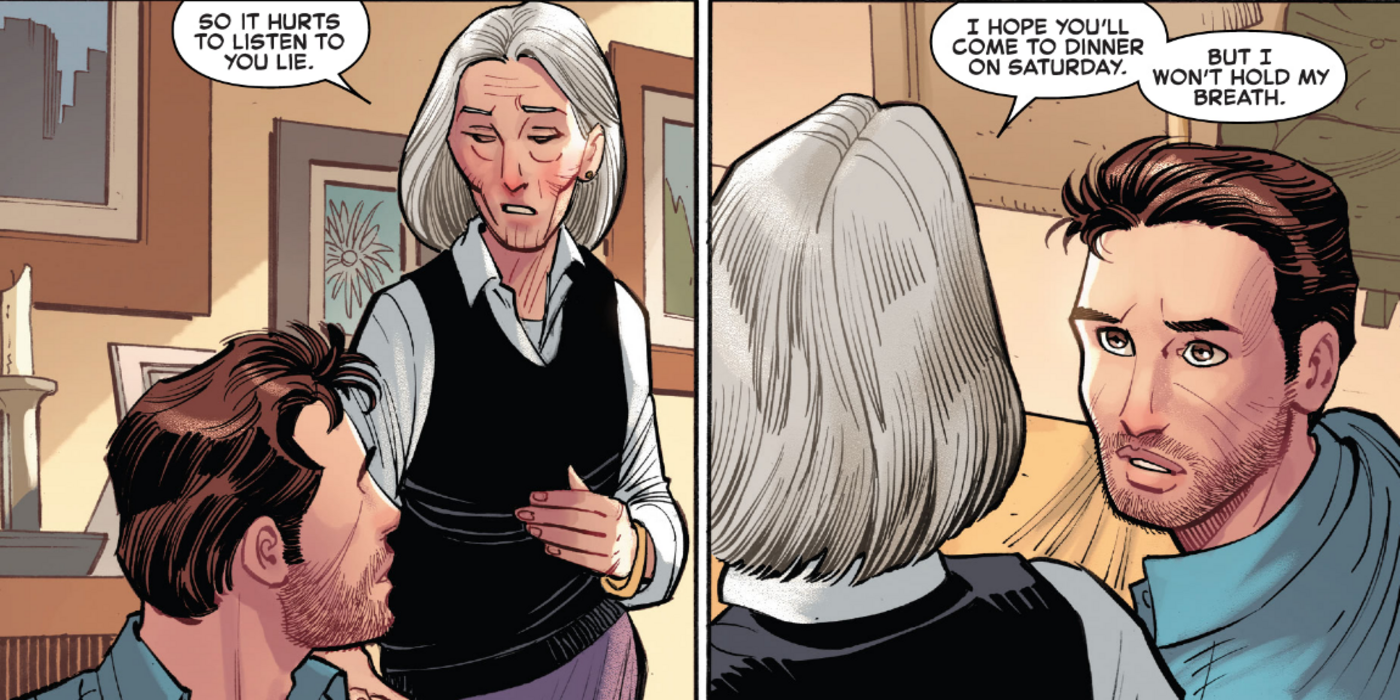The following contains spoilers for Amazing Spider-Man #1, now on sale from Marvel Comics
To celebrate Spider-Man’s 60th anniversary, Marvel is launching a new volume of The Amazing Spider-Man. Written by Zeb Wells and featuring superstar artist John Romita Jr., the Wall-Crawler’s brand-new adventure promises a big year for Spider-Man. But there’s a big mystery at the center of it: Peter Parker’s latest actions have negatively impacted all his relationships. A few pages into The Amazing Spider-Man Volume 6 #1 (by Zeb Wells, John Romita Jr., Scott Hanna, Marcia Menyz, and VC's Joe Caramagna) one thing is clear: Even after sixty years, Spider-Man’s greatest weakness continues to be poor communication and being unreliable.
When the story opened, Spider-Man was somewhere in Pennsylvania. Peter's costume was in pieces, and he looked bad. But no explanation was given for his state. Instead, there’s a six-month time jump and Peter is back in New York City. However, he isn’t talking. As a result, Aunt May thought he was a liar, a debt collector was hounding him, and his friend and former roommate, Randy Robertson, was furious with him. On top of that, The Fantastic Four had cut ties with Spider-Man, and saddest of all, Mary Jane Watson was with another man. What did Spider-Man do… this time?
Being Spider-Man is tough. Peter constantly struggles to manage his civilian life and his superhero duties. Unlike the other heroes in the Marvel universe, he also has less stability in his life. Spider-Man's adventures barely leave him time to earn steadily or be there for people. Perhaps out of guilt for being culpable in Uncle Ben’s death, he always puts Spider-Man ahead of everything else. Since few are aware of his secret identity, most people dismiss his constant disappearances and flimsy excuses as a sign of Peter being flaky and undependable.
But Spider-Man does not deserve that last label. Whenever the world was in danger, Spider-Man has always been there. Moreover, Peter fears that in keeping his loved ones in the loop, villains will hurt them if they discover his secret identity. But by keeping them at arm’s length and frequently prioritizing Spider-Man over everything else, Peter undermines the trust in his relationships. He dismissed Johnny Storm when the latter paid a visit and barely paid attention when Randy expressed concern in issue #1.
This is not new behavior from Peter. From his early days, he hasn’t been the best at maintaining his personal relationships. When Harry Osborn, still recovering from his LSD overdose, begded for help in The Amazing Spider-Man #122 (by Gerry Conway, Gil Kane, John Romita Sr., Tony Mortellaro. Dave Hunt, and Art Simek) Peter walked out. Even his relationship with Gwen Stacy suffered because he couldn’t communicate with her in complete honesty.
Peter gets so caught up in his own troubles and pain, so often he forgets that other people care and worry about him. Spider-Man has one of the most iconic Rogue’s Galleries in comic book history. But no villain has inflicted as much damage to his life as Peter does on a daily basis by failing to show up.
What would life look like if Peter could be depended on outside the costume? Look no further than Miles Morales. After confiding his secret to his parents, his uncle, and his best friend, Ganke, Miles has a strong support system that helps him manage his life. Peter’s life would be much easier if he took the time to be more honest and communicative, especially with Aunt May.
Aunt May is the closest thing Peter has to a mother. But although he keeps her in the dark out of fear about what could happen, the Ultimate Spider-Man series proved that when she learned the truth, it only strengthened their relationship. She still worried about him, but she also understood why Peter had to constantly bail.
Peter forgets that humans need social relationships to thrive. This matters especially at low points in life. Being Spider-Man is important, but in choosing to abdicate and neglect his relationships in favor of fighting crime all the time, Spider-Man fails to recognize that a large part of great responsibility means being there for people. By putting the world ahead of his aunt, his girlfriend, and his friends, he forgets that doing sends a constant message that they will always be second place in his life.
It’s too early to say where the new volume of The Amazing Spider-Man is headed. Tearing a superhero down back to basics and slowly rebuilding them into a stronger character is an old trope. One can hope that this time, Spider-Man will realize that good communication and dependability are superpowers in their own right. Will Spider-Man learn from his mistakes or is he doomed to repeat them in a hell of his own making?




